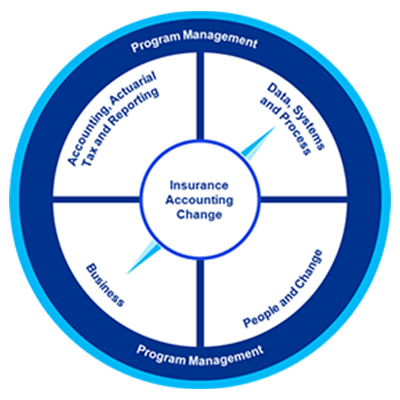IFRS 17: Current challenges and creating value beyond compliance
Insurers have spent significant resources implementing IFRS 17. However, to truly realize value, more work needs to be done.

The year 2023 has been pivotal for those insurers adopting IFRS 17 and IFRS 9. While many insurers have focused their efforts on meeting regulatory and financial reporting deadlines to date, they are now beginning to focus on how they create value beyond compliance.
Insurers have spent significant time, effort, and financial resources on implementing IFRS 17 in areas such as accounting policy, actuarial methodologies, modeling, data, systems, or solution development. However, to truly realize value, more work is required. The key will be to take “no-regrets” steps that incorporate greater automation and adaptability.
Diving into the challenges
Faced with a daunting task, IFRS 17 implementers are grappling with several challenges, which have led to the following:
- Resource-intensive processes and longer close cycles
- Significant manual workarounds
- Data preparation and cleansing
- Large volumes of spreadsheets
- Significant process and control gaps
- High resource turnover
- Errors and potential restatements
- Regulatory risk, including non-compliance with filing deadlines
Some of the key drivers include:
1
Data and technology
A fundamental shift in underlying technology and the sourcing of more granular data is necessary for reporting under IFRS 17.
Identifying, sourcing, integrating, cleansing, and storing high-quality data is yet to be adequately addressed by many insurers. Insurers are also realizing that the technology they selected may require more substantial configuration and tailoring efforts than expected.
2
Processes, controls, and governance
The complexity of IFRS 17 means that a complete overhaul of the financial reporting process for insurance accounting is necessary.
Many insurers have already gone live with significant process and control issues, which have been compounded by prioritization, time and capacity challenges. This has led to an increase in errors, which are often being corrected via manual workarounds, and the risk of potential misstatements.
3
Policies and methodologies
IFRS 17 also necessitates a significant overhaul of accounting policies and actuarial methodologies.
In many cases, spurious results have required insurers to iterate policies and revise results multiple times. In other cases, some insurers are attempting to plug any remaining significant policy gaps with unsustainable workarounds.
There also remain several emerging technical issues that some insurers will need to resolve such as matters around PAA eligibility and reinsurance contracts held.
4
Regulatory
The level of engagement of local regulators has varied.
Some regulators have requested surveys, financial impact assessments, and/or pro forma pre-adoption financial statements. While this has pushed insurers to maintain momentum, it has also diverted resources away from core project delivery. Other regulators have been quieter, which has created uncertainty but also relieved some from additional short-term demands.
5
People
Resource demand has been substantial due to labor-intensive processes, manual adjustments, workarounds, and spreadsheet dependence. As a result, most insurers have reported instances of fatigue, burnout, and turnover within their teams.
Preparing for the year-end audit
Under IFRS 17 and IFRS 9, the first year-end audit will not be traditional for the following reasons:
- Three sets of balances within the 2023 financial statements will be subject to audit.
- More judgments and estimates under IFRS 17 and IFRS 9 will result in greater challenge and scrutiny from auditors.
- Manual intervention and fluid process and controls will generally result in auditors taking a more substantive audit approach, and may result in a greater number of control deficiencies being identified.
- Increased use of simplifications and approximations may lead to a greater number of items reflected in the summary of unadjusted audit differences, and potentially increase aggregation risk as it relates to materiality.
As a result, insurers will likely see greater engagement from senior members and specialists within the audit team.
To succeed in the year-end audit, insurers must plan ahead and remain proactive, develop robust documentation, maintain clear and open communication with their auditors and work collaboratively with them.
Creating value beyond compliance
Leaders need to set their sights on a range of different areas, which typically overlap with management’s strategic priorities to create value beyond compliance. Key considerations include:
- Automate and streamline existing processes or design new processes.
- Enhance data management to create better business intelligence, increased accuracy in financial reporting, and the ability to identify trends and opportunities.
- Improve controls and governance to mitigate risks, ensure compliance, and promote better oversight.
- Modernize legacy systems and applications.
- Innovate by embracing new and emerging technologies to improve the efficiency and effectiveness of financial reporting.
- Support resources to avoid burnout; people remain fundamental to the path ahead for insurers.
How KPMG can help

KPMG has a cross-functional team ready to provide your company with a suite of services to support you through pre- and post-accounting change implementation. This team consists of technical accounting, actuarial, data, financial transformation, and other insurance sector specialists with deep experiences in their respective fields.
Dive into our thinking
IFRS 17: Current challenges and creating value beyond compliance
Download PDFMeet our team





